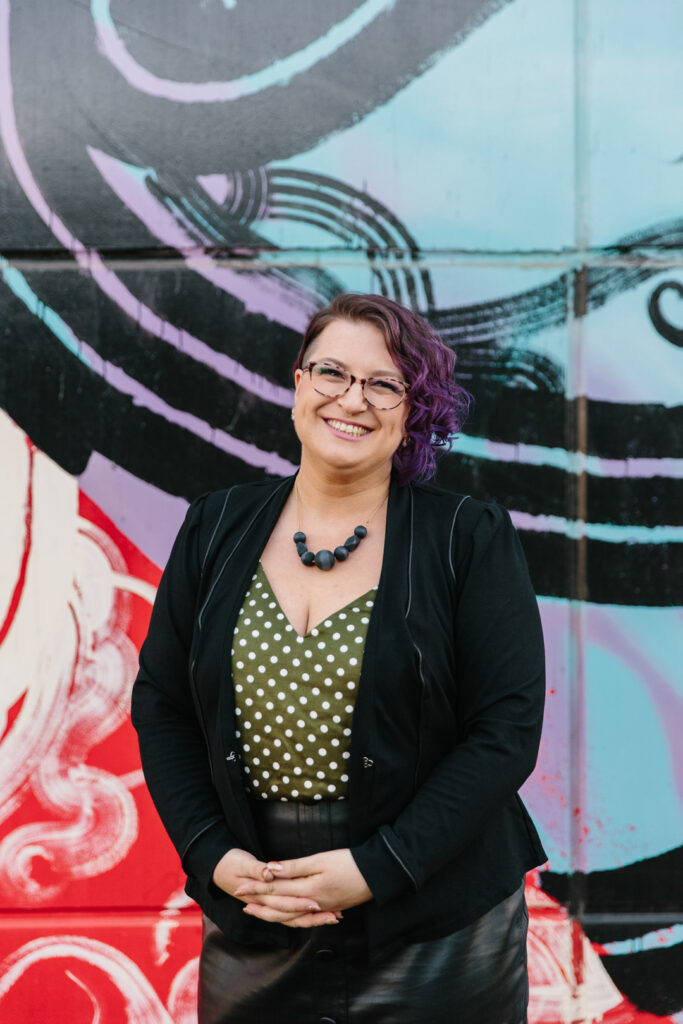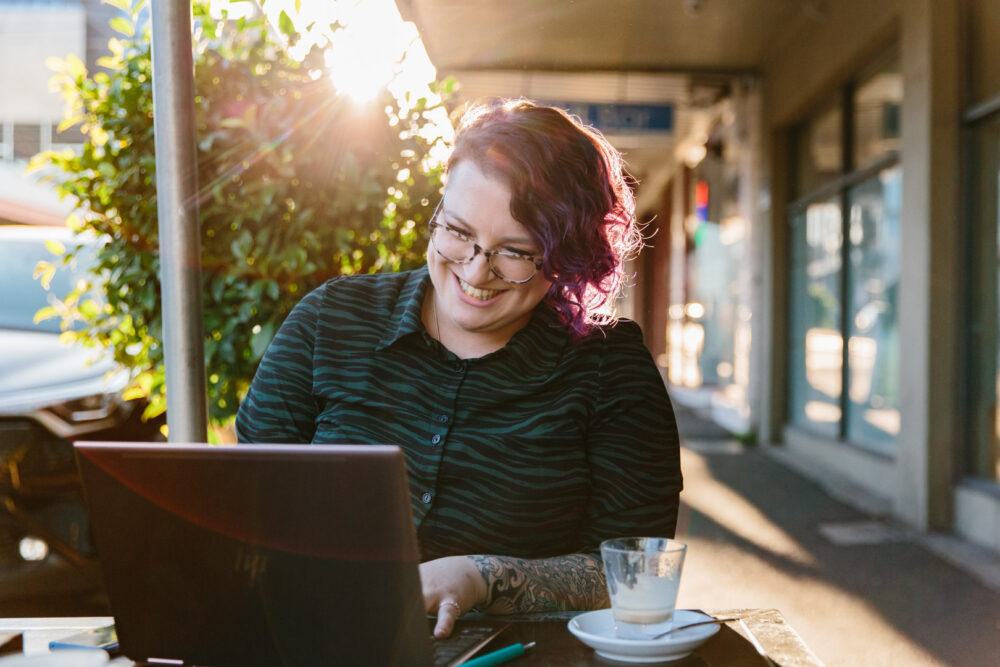As a neurodiverse, bisexual, cis-woman who has experienced domestic, family and sexual violence (DFSV) throughout life, I recognise that gendered violence has played a significant part in my story. On a macro level, gendered violence is part of our national story and an ongoing source of national and international shame.
Yet one of the most significant barriers to genuine acceptance of lived experience as a form of expertise is government gatekeeping. Our lived experience is treated as an ad-hoc resource, and not the crucial knowledge it actually represents.
To shift this status quo, a national collective of victim-survivors and survivor-advocates, of which I’m part, has published a letter to State and Federal Women’s Safety Ministers requesting we be instrumental in the next National Plan to reduce Violence Against Women and Their Children. Historically, survivors have not been stakeholders in the National Plans.
Let’s unpick this. Why is lived experience so important?
In her book, See What You Made Me Do, author and journalist Jess Hill argues that “deep shame is said to drive a person who uses violence into a state of ‘humiliated fury’.”
Shame is also a significant factor that extends the isolation of victim-survivors from escaping, disclosing their trauma or seeking any form of recourse for their pain, let alone justice.
Research shows that in instances of institutionalised child sex abuse, it can take decades to make a disclosure. Victims may return to their partners multiple times before successfully leaving, and many victims simply want the violence, not the relationship, to end. Shame can affect every aspect of a victim’s survival, recovery journey and mental health. The shame of what someone else is doing to us keeps us silenced.
I’ve experienced this myself. Shame is the prison in which people who use abuse and violence lock their victims within, some briefly, some for life.

Mel Wojtas is part of a national collective of victim-survivors and survivor-advocates demanding survivors have a seat at the table.
For those of us who have the privilege of finding our voices and a platform or opportunity to safely use them, a deep desire to speak out begins to rise. We are the lucky ones in that we are alive. We pay a heavy price for that ‘luck,’ yet it is the trade-off for moving forward, one day at a time (dependent on privilege, social connection and circumstances).
Victim-survivors have immense knowledge of the complexities and nuanced nature of their experiences, yet collectively the same central thread and patterns of behaviour emerge. Our acts of resistance and survival, ingenuity and creativity to placate our abuser to prevent further abuse or harm to others, our strengths and resilience, are truly remarkable.
Yet we are not seen as credible or capable by the systems supposed to ‘protect’ and help us. Victim-survivors have historically been consulted on a piecemeal basis, often with the allure of voluntary work for having been given a seat at the table or gift vouchers for their time. Invited to guide services, research and policy but rarely with attribution or credit for our efforts and work. It is often decided for us ‘what is safe,’ which is not a choice or empowering practice. In fact, it’s another way of silencing our voices.
To my mind, we are seen and treated generally as a tokenistic input, rather than a stakeholder with any perceived power to enact lasting change.
Researchers and the ‘professionals’ have built careers on exploring our experiences. Peak bodies, services and government departments use our knowledge and study our ‘vulnerability’, especially Aboriginal and Torres Strait Islander women who are 32 times more likely to experiences abuse than non-Indigenous women, for their own gains.
Representation matters, who is seen and who is not counts. With the help of modern innovation and technology, more women and children are hearing, seeing and participating in conversations about gender equality and what it will take to achieve it – one day.
Women are rising worldwide. Thanks to Indigenous women, women of colour, feminist movements, LGBTIQA+ activists, disabled people, and their allies, racial and gender equality has taken the mic in the 21st century with the #MeToo and #BlackLivesMatter movements. We’re fighting all forms of oppressions where intersecting disadvantage and discrimination feed into and fuel gender-based and family violence.
Women of all walks are shedding their shame, an inch at a time, then a layer at a time. The topics that would not dare be said out loud are not as taboo as they were decades ago.
These social and environmental progressions have provided victim-survivors a chance to be heard. Within that awakening are breathtakingly strong, resourceful, articulate, smart women and child survivors made of determination and grit who work tirelessly, with little to no thanks, to try to change things now and prevent violence being learned or passed down for the next generation.
We are warming up our vocal cords and aiming both middle fingers to the shame, the past, the patriarchy and the systemic barriers that overarch our progress – to move from surviving to reclaiming our lives, freedoms and eventually towards thriving.
I’m forever grateful to Domestic Violence NSW for being selected as part of an inaugural advocacy group, Voices for Change NSW who taught me the foundations of advocacy work. Almost two years on, the opportunity to meet advocates in other parts of Australia come to fruition. When meeting other Survivor-Advocates, the feeling of their contributions being tokenistic was unanimous around the country.
Victim-survivors know what is best and safest for them in their past, present, and future. Despite this, we are not given the same recognition in policy or decision making. Policy decisions have real-world consequences. Victim-survivors are the end-users of reforms that impact our living conditions and wellbeing, from access to fundamental human rights such as shelter, food and safety.
This is why a collective of Victim-Survivors and Survivor-Advocates have come together to draw a line in the sand and put the Government on notice. Together, we have asked for establishing a Victim Survivors Expert Advisory Panel (VSEAP) to guide the development, implementation, monitoring and evaluation of the following National Action Plan to reduce violence.
We have further requested a commitment to co-design and co-production with victim-survivors for all domestic, family and sexual violence policy, service delivery and reforms.
If our requests are accepted, it would show formal recognition of lived experience being a valid form of expertise. Furthermore, it will neutralise the power imbalance between advocates, specialist services, peak bodies and government. In an ideal world, I would await the outcome as a “when” not an “if”, yet for now, we wait to see whether the government will share the power.
Mel Wojtas is a lived expertise consultant, media advocate, writer and author. Mel generously shares her three decades of lived experience and knowledge from youth issues, mental health, complex trauma, suicide prevention, coercive control, domestic, sexual and family abuse and violence.





